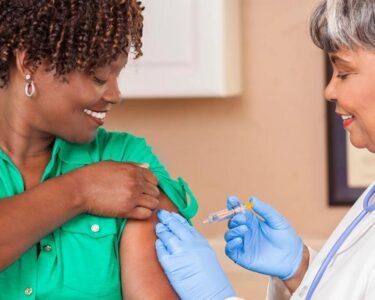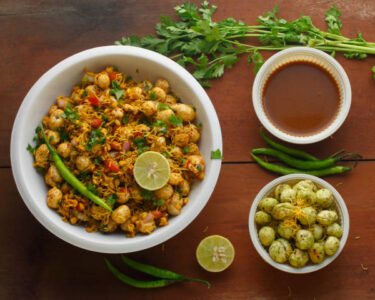The prostate — a small, walnut-sized gland found below the bladder in men — plays a crucial role in reproductive health by producing seminal fluid. But as men age, this tiny gland can become a big concern. Two of the most common issues affecting the prostate are Benign Prostatic Hyperplasia (BPH) — a noncancerous enlargement — and prostate cancer, which is among the leading cancers in men worldwide.
While age and genetics are risk factors that can’t be changed, diet and lifestyle choices play a significant role in maintaining prostate health. Urologists emphasize that what you eat can influence inflammation, hormone levels, and overall prostate function. By making smart dietary choices, men can reduce their risk of prostate enlargement and cancer naturally.
Here’s what top urologists recommend including in your diet to support a healthy prostate and lower disease risk.
1. Tomatoes – A Rich Source of Lycopene
Tomatoes top the list when it comes to foods beneficial for prostate health. They are rich in lycopene, a powerful antioxidant that gives them their bright red color. Lycopene helps neutralize free radicals that can damage cells and contribute to cancer development.
Studies show that men who consume tomato-based foods regularly have a lower risk of prostate cancer. Cooking tomatoes enhances lycopene absorption, so foods like tomato soup, sauce, or paste are even more effective than raw tomatoes.
Urologist tip:
2. Cruciferous Vegetables – Nature’s Detoxifiers
Cruciferous vegetables like broccoli, cauliflower, cabbage, kale, and Brussels sprouts are packed with compounds called sulforaphane and indole-3-carbinol, which help detoxify the body and support hormonal balance. These compounds aid in flushing out carcinogens before they can damage DNA, thus reducing cancer risk.
Research has found that men who eat cruciferous vegetables at least 3–4 times per week have a significantly lower incidence of prostate cancer.
Urologist tip:
Steam or lightly stir-fry these vegetables to preserve their cancer-fighting nutrients. Avoid overcooking, which destroys the beneficial compounds.
3. Fatty Fish – Omega-3 Powerhouse
Cold-water fatty fish such as salmon, mackerel, sardines, and trout are rich in omega-3 fatty acids, known for their anti-inflammatory properties. Chronic inflammation is believed to play a role in both BPH and prostate cancer progression.
Omega-3 fats help reduce inflammation, support cell membrane health, and balance hormones — all essential for prostate protection.
Urologist tip:
If you don’t eat fish, consider plant-based omega-3 sources like chia seeds, flaxseeds, and walnuts.
4. Green Tea – The Antioxidant Elixir
Green tea is rich in catechins, particularly epigallocatechin gallate (EGCG), which has been shown to inhibit the growth of cancer cells and reduce inflammation in the prostate. Regular green tea drinkers have lower rates of prostate cancer, according to several studies.
These powerful antioxidants may also slow down the progression of BPH by reducing oxidative stress and hormonal imbalances.
Urologist tip:
Drink 2–3 cups of freshly brewed green tea daily. Avoid bottled versions that contain added sugar or preservatives.
5. Berries – Tiny Fruits with Big Benefits
Berries such as strawberries, blueberries, raspberries, and blackberries are rich in vitamin C and antioxidants that help fight free radical damage in the prostate. They also contain anthocyanins and ellagic acid, which have been shown to prevent cancer cell growth.
Berries are low in calories, easy to digest, and can be added to breakfast, smoothies, or snacks for a daily antioxidant boost.
Urologist tip:
Choose fresh or frozen berries without added sugar. Consistent intake supports prostate and cardiovascular health.
6. Nuts and Seeds – Zinc and Selenium Boost
Minerals like zinc and selenium play a vital role in maintaining prostate health. Zinc helps regulate testosterone and dihydrotestosterone (DHT), two hormones involved in prostate growth, while selenium supports antioxidant activity that protects against cell damage.
Pumpkin seeds, Brazil nuts, almonds, and sunflower seeds are excellent sources of these nutrients.
Urologist tip:
Avoid salted or fried nuts, as excess sodium may worsen BPH symptoms.
7. Whole Grains and Legumes – High Fiber, Low Fat
Whole grains like brown rice, oats, and quinoa, and legumes such as beans, lentils, and chickpeas, are high in fiber and low in saturated fat. Diets rich in fiber help control blood sugar and cholesterol — both linked to better prostate outcomes.
High-fiber foods also aid in detoxification and hormonal balance, reducing excess estrogen that may promote prostate cell growth.
Urologist tip:
Replace refined grains with whole grains and include legumes in your meals at least four times a week for optimal benefits.
8. Soy Products – Natural Hormone Modulators
Soy-based foods such as tofu, tempeh, and soy milk contain isoflavones, which mimic estrogen in a mild, protective way. These compounds help regulate hormone levels and have been associated with a lower risk of prostate enlargement and cancer.
Populations that consume more soy, such as those in Japan and China, show much lower prostate cancer rates compared to Western countries.
Urologist tip:
Avoid heavily processed soy products or supplements without medical supervision.
9. Pomegranate – The Heart and Prostate Protector
Pomegranate juice and seeds are loaded with polyphenols, potent antioxidants that help reduce inflammation and slow the growth of prostate cancer cells. It also improves blood flow and supports heart health — which is closely linked to prostate function.
Urologist tip:
Drink a small glass of pure, unsweetened pomegranate juice or add the seeds to salads for a daily antioxidant punch.
Lifestyle Matters Too
A healthy diet is just one part of prostate care. Urologists emphasize combining it with these essential habits:
- Maintain a healthy weight to balance hormones.
- Exercise regularly — at least 30 minutes a day.
- Limit red and processed meats, which are linked to inflammation.
- Avoid excessive alcohol and quit smoking.
- Stay hydrated and reduce caffeine intake if you have urinary symptoms.
Conclusion
Your diet can be a powerful tool in protecting your prostate. By including foods rich in antioxidants, omega-3 fatty acids, and essential minerals, you can help reduce the risk of both BPH and prostate cancer.
As urologists often say, “What’s good for the heart is also good for the prostate.” A balanced, plant-forward diet, coupled with an active lifestyle, not only supports prostate health but also promotes overall well-being. Small, consistent dietary changes today can make a significant difference in maintaining a healthy prostate for years to come.
Do Follow Us On Instagram







